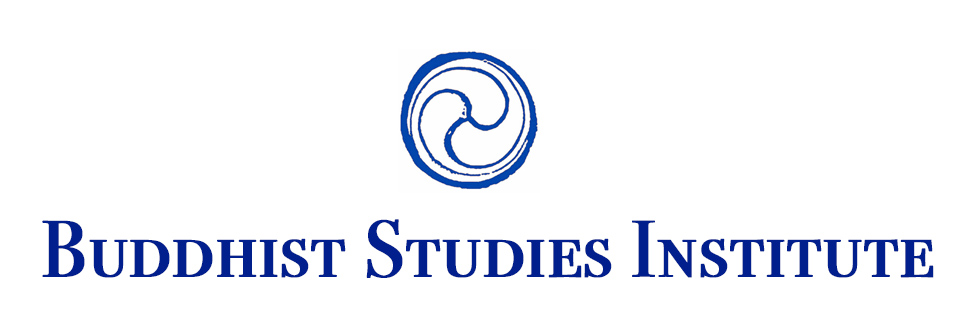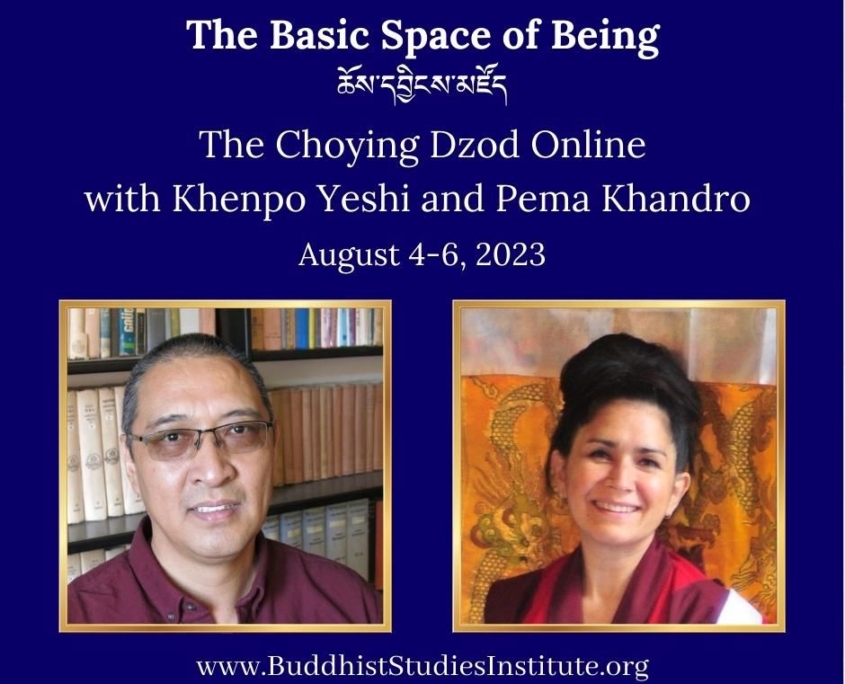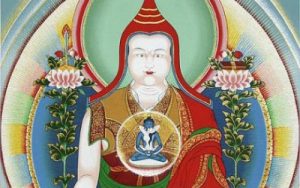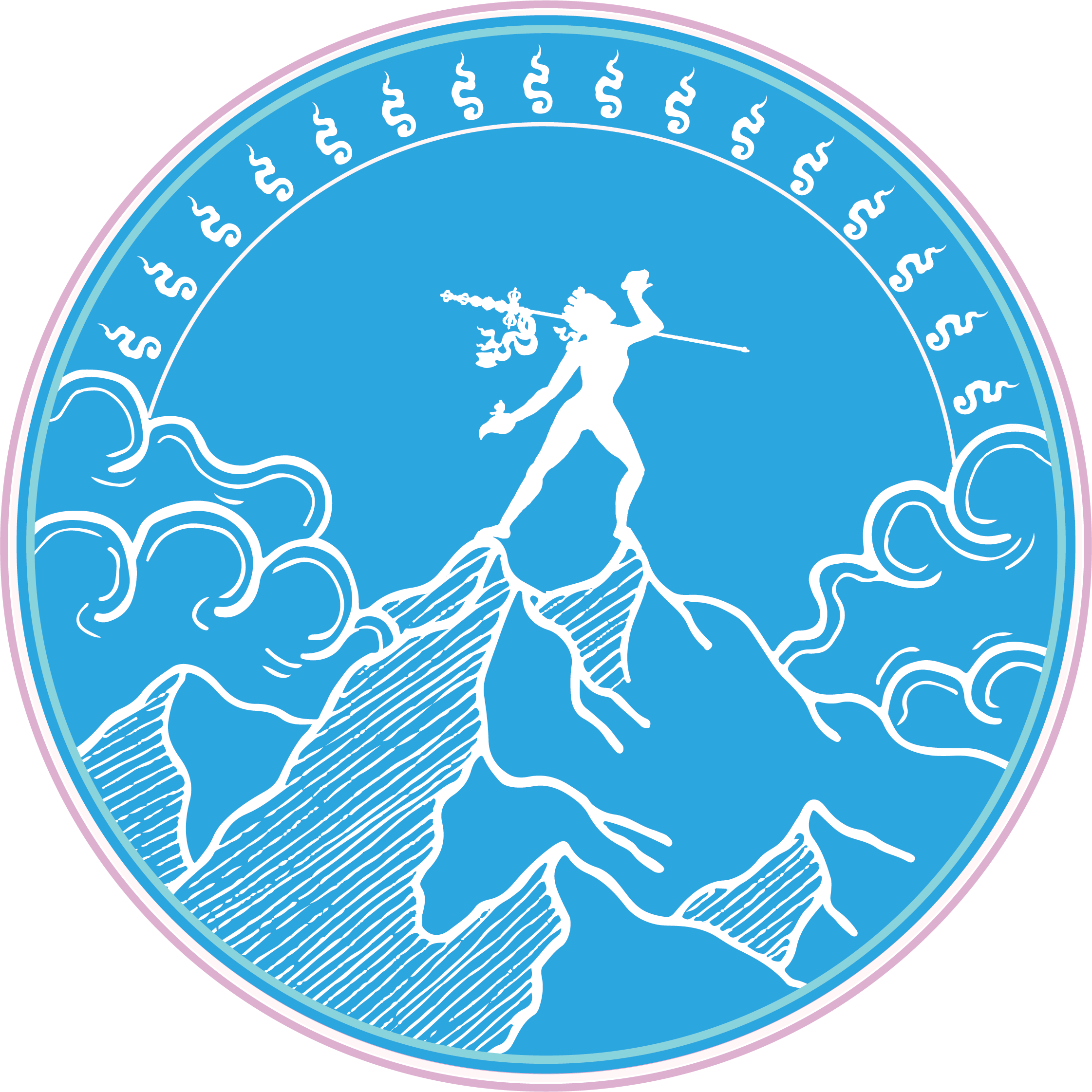ཆོས་དབྱིངས་མཛོད – The Basic Space of Being
Online retreat with Khenpo Yeshi and Pema Khandro.
Beyond effort and achievement is the state of natural ease, the basic space of being. How to breakthrough to find this innate expanse is the focus of a profound Buddhist meditation manual known as The Treasury of Basic Space, The Choying Dzod (chos dbyings rin po che’i mdzod). It presents the essence of esoteric Tibetan Buddhism, known as Great Perfection, or Dzogchen (rdzogs chen) in verse form. Venerated as a manifestation of the expanse of reality itself, is the quintessential Dzogchen text by the fourteenth century master, Longchenpa. It refers to the expanse of reality and pure experience of meaningfulness as the revelation of the ground of being.
The Treasury of Basic Space is a manual for meditation and liberation, as well as being a text that one reads to a dying person to introduce them to the nature of mind at death. Read during dying, it offers the crucial support at the most important time, by guiding the dying person to realize the nature of mind. Indeed, The Treasury of Basic Space has been read at the time of death of many great Dzogchen masters.
The Treasury of Basic Space details the elements of breakthrough meditation (trek cho), instructions which cut through misunderstandings of emptiness and point to the vivid wakefulness of sublime knowing.
Join Buddhist Studies Institute for this special program taught online by Khenpo Yeshi, Dzogchen Nyingthig scholar and Drikung Kagyu teacher and Dr. Pema Khandro, Dzogchen scholar, lama and lineage holder of the Nyingma tradition. The three days of online classes will include the lung, the oral initiation into this profound text by Khenpo Yeshi, study, and practice led by Khenpo Yeshi and Dr. Pema Khandro.
About the Teachers
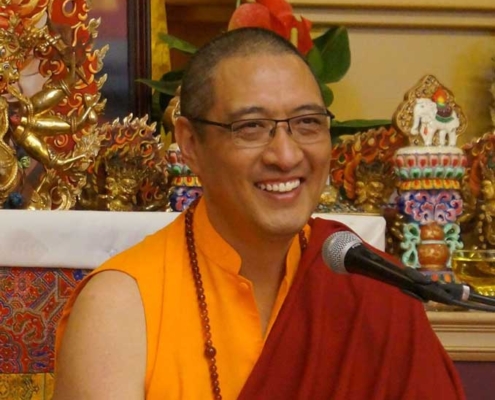
Khenpo Yeshi
Khenpo Yeshi Rinpoche was born into a noble family in Kham, East Tibet in 1969. Arriving in South India at nineteen, Khenpo Yeshi went to Sera Monastery. Later, he entered Dzogchen Monastery in order to complete his studies in both the Sutra and Tantra trainings. Over the years, Khenpo Yeshi studied closely with more than two dozen eminent Khenpos, including His Eminence Khenchen Meiwa Tubten Rinpoche and His Eminence Khenchen Pema Tsewang Rinpoche. Moreover, he received empowerments, transmissions, and oral instructions of both kama and terma of the Nyingma tradition from such renowned high Lamas as His Holiness the 14th Dalai Lama, His Eminence Tulku Urgyen Rinpoche, His Eminence Dodrupchen Rinpoche, His Eminence Taklung Tsetrul Rinpoche and His Holiness Khathok Moktsa Rinpoche. Upon completion of 3-year retreat in 1997, His Eminence Chökyi Nyima Rinpoche invited Khenpo Yeshi to teach at the monastery’s Shedra (program of advanced Buddhist studies). Khenpo Yeshi received a B.A. in Religious Studies from UC Berkeley (2012), an M.A. in South and Southeast Asian Studies from UC Berkeley (2017), and is now a doctoral candidate. His research focuses on Tibetan Buddhism and the early development of the Dzogchen Heart Essence (Rdzogs chen snying thig) tradition, the highest section of the so-called Pith Instruction Teaching (Man ngag sde) of Dzogchen.
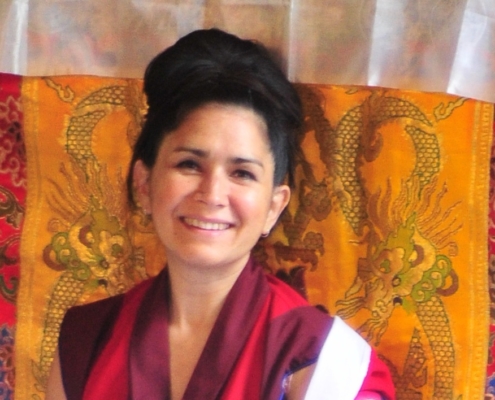
Lama Pema Khandro, PhD
Dr. Pema Khandro is an internationally renowned teacher and scholar of Buddhist philosophy. She is the founder of Ngakpa International and its three projects, The Buddhist Studies Institute, Dakini Mountain and the Yogic Medicine Institute. In her work as a Buddhist teacher she is an authorized Lama and lineage holder of the Nyingma and Kagyu traditions and was enthroned to carry on the lineage of her predecessor, the first Pema Khandro, an early twentieth century yogini from Eastern Tibet. She has led a vibrant world-wide community since 1999. Through the Buddhist Studies Institute, she also offers a complete curriculum of training in Tibetan meditation and Buddhist Philosophy. She has a bachelor’s degree in Sociology, a Master’s degree specializing in Tibetan studies, and a Ph.D. in Buddhist Studies from the University of Virginia. Her scholarly research focuses on the history of Dzogchen Nyingthig and on Women in Tibetan Buddhism.
Prerequisites
–
This program is open to the public, all are welcoming, but ngondro is traditional pre-requisite for Dzogchen practice and is thus recommended for continuing on with the practice after the retreat.
